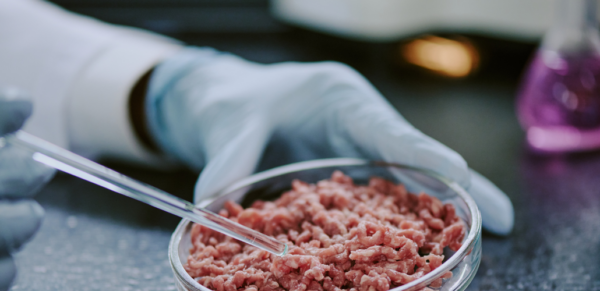General Mills Updates Pollinator Policies

Clean Yield Asset Management was pleased to withdraw a shareholder proposal at General Mills, co-filed with As You Sow Foundation, after a constructive dialogue resulting additional commitments by the company to support beleaguered pollinator populations. In so doing, General Mills has become the first major packaged foods company to improve policies to protect bees and other pollinators from the impacts of pesticides.
Since 2006, nearly one-third of all honeybee colonies in the US have vanished due to Colony Collapse Disorder. According to the International Union for the Conservation of Nature, which reviewed more than 800 peer-reviewed studies, neonicotinoid insecticides (“neonics”) are causing significant harm to bees and ecosystems. Over the past decade, neonics have grown to roughly 25% of the global agrochemical market.
“Many of the crops that General Mills buys depend on pollinators,” said Austin Wilson, Environmental Health Program Manager at As You Sow. “By investing in supply chain sustainability, General Mills is ensuring the future of its supply chain and its profitability.”
General Mills agreed to update its Global Responsibility Report with a commitment to support the White House’s Pollinator Health Task Force strategy. The company has also committed to “protecting pollinators from exposure to pesticides” through an extended partnership with nonprofit conservation group Xerces Society and key commodity crop suppliers “to consolidate and disseminate guidance to growers of key commodities such as corn and soy on how to protect and minimize the impact of neonicotinoids and other pesticides to pollinators.”
Home Depot, Lowes, and Whole Foods recently made commitments to provide suppliers with incentives to cease using neonics.
Susan Baker of Trillium Asset Management, who joined Clean Yield and As You Sow in the discussions, commend the company for its actions. “These steps send an important market signal that working closely with suppliers to reduce pollinators’ exposure to bee-harming pesticides is essential to mitigating a serious systemic risk to our food system.”
General Mills’ other corporate responsibility initiatives include a commitment to sustainably source 100% of [its] ten priority ingredients by 2020, as well as targets to reduce greenhouse gas emissions.
More News & Insights
Proxy Voting: A Critical Tool for Individuals and Investors to Influence Corporate Behavior
Learn how proxy voting gives equity (stock) investors a powerful tool to pressure corporations to act more responsibly.
A New Kind of Meat
Through Clean Yield’s U.S. Sustainable Investment Forum membership, Liz Levy attended a meeting to gain insights on the emerging cultivated meat industry.
Stock Profile: SoFi Technologies
SoFi Technologies, originally named Social Finance, Inc., by its founders, contributes positively to financial inclusion and social well-being by expanding access to affordable financial services through its digital-first platform.


